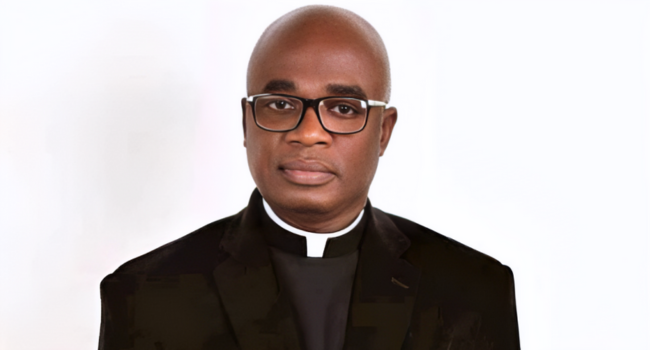
Benue Governor Alia attributes the state’s long-term insecurity to Nigeria’s adoption of the 1999 ECOWAS protocol for cross-border grazing, describing it as the cornerstone of the crisis, which has replaced thousands of people and subverted the state’s agricultural earnings.
In with pioneerpoliticians transformed by Catholic priests lament the consequences of the agreement, which allows herders from neighboring West African countries to move freely across borders for grazing. According to him, the framework formally adopted by Nigeria in 1998 has greatly changed the dynamics between local communities and herders.
“In the years we grew up we used to see herders coming in the dry season and then leaving. There were orders. But after 1999, what we started to see was completely different. What is happening now is not traditional grazing – planning, coordination and militarization of displacement,” Aria said.
The governor explained that today’s invasion was no longer led by herders with sticks and machetes, but by armed mercenaries before the herders arrived, killing and driving the locals out of the land of their ancestors. He believes that the process is part of a larger agenda involving the grabbing of land, which seriously affects Benue, known for its agricultural strength.
“As I said, 17 of our 23 local governments are still working to be internally displaced. We currently operate 14 IDP camps statewide. These camps are a temporary solution, but our goal is to return our people to their ancestral lands.”
Alia, who will commemorate 35 years of priesthood in July this year, said his transition to politics was driven by a sense of urgency. He had previously been in charge of Vandeikya’s proposed Catholic university and then took leave to enter partisan politics.
“Being a pastor is ready for the role. We have been in business that supports and fixes the community,” he said. “But politics has its own unique traits. Back in the church, we are not used to lying. Politically, I have to adjust quickly.”
The governor revealed that after taking office, his government worked with the United Nations through the International Organization for Migration (IOM) to establish appropriate data on displaced persons, a step the government has not taken before. “Before coming in, there was no data. By June 2024, we have identified 500,000 displaced people, affecting more than 870,000 households,” he noted.
Aria stressed that Nigeria must now reconsider its commitment to the ECOWAS agreement. He added: “If the federal government re-engages environmental groups and calls for a review or reversal of Nigeria, it would be a major breakthrough in solving internal security issues.”
Alia highlights the state’s abundant natural resources, including gold, lithium, uranium and fertile land, and these blessings have now become the target of the criminal network. He believes that these precious assets are ironic, curses, attract violence and chaos.
The governor confirmed that most of the attackers were not indigenous, pointing out that the local government of Quaran in Benue had a porous border with Cameroon, which allowed for easy invasion. “We know our people. When strangers carry different traits, weapons and tactics, we know different.”
Nicknamed “Mr. 25”, because salary is being paid continuously on the 25th of each month, and now even earlier, Alia reiterates his government’s commitment to financial responsibility. “When we came in, we inherited 359 billion guild debt, but we still managed to pay the debt to civil servants, pensioners and contractors. It’s all about proper planning and strategy,” he said.
He noted that the first thing his administration did was to ensure that civil servants and pensioners received payments on time, debunking the claim that the federal government had stopped financial support. “The support comes in. The problem is what happened between Abuja and Makurdi.”
Aria also highlighted the financial discipline he adopted from the church. “We pinched a cent, which gave some elites the opportunity to get public funds without restrictions. They didn’t want to be taught how to fish; they just wanted to hand over the fish to them.”
He said on infrastructure projects such as Otobi/Otukpo and Katsina-Ala water plants, he said his government must repay debts left by previous governments. “We didn’t bring those contractors, but we’ve paid what we owed them so they can continue to work.”
Alia’s concerns about his relationship with the judicial and political institutions ahead of the 2027 election said the judiciary was not nervous despite the controversy surrounding the chief judge. “We comply with the law. Now, this matter is related to the National Judicial Commission (NJC).
Politically, Aria said the deep-rooted interests are opposing the reforms he is implementing. “The fight against corruption is resistant. Some people don’t want school repairs, hospital repairs or salaries. They want business as usual,” he said.
Despite these challenges, the governor of Aria remains optimistic. “We showed the Benues that with the right strategy and willpower, change is possible. A new Benue is not a dream. It is already happening.”
